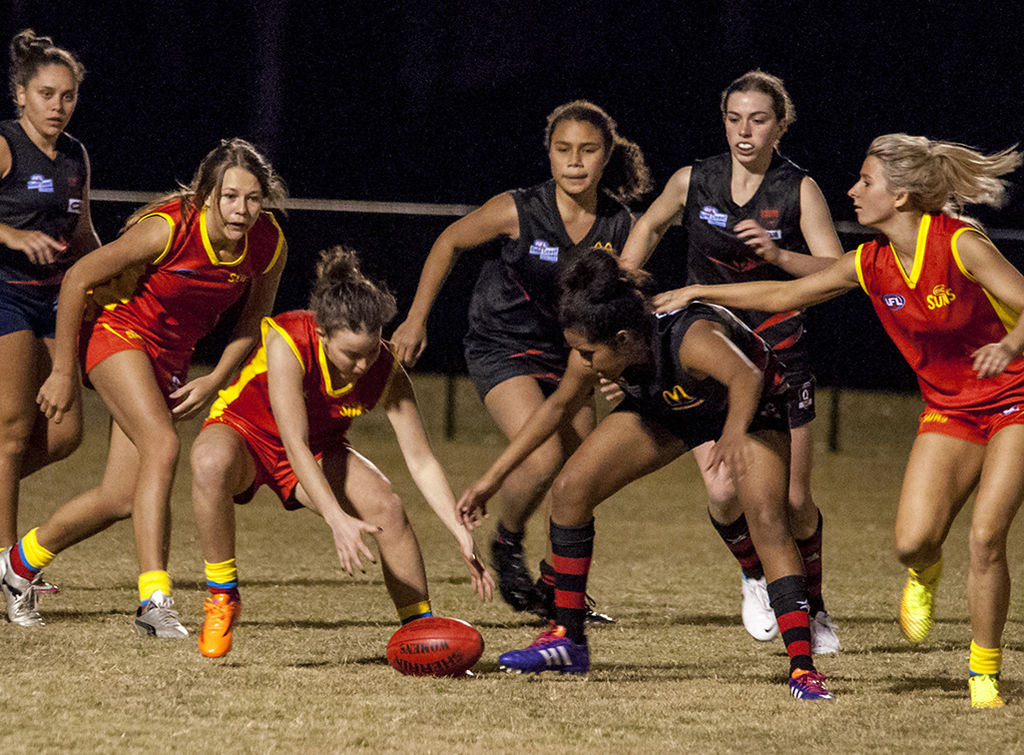Traumatic brain injuries (TBIs) can temporarily or permanently alter brain function. Concussion is a type of TBI usually resulting from a hit to the head, or the head hitting another object.
Diagnosing concussion
Whether from falls or sporting-related activities, concussions are notoriously difficult to diagnose.
While other traumatic brain injuries may present with more obvious physical signs that something is wrong, diagnosing concussion outside of a clinical setting is subjective.
TBIs are complex and potentially life-changing injuries. We’re working with partners to improve and speed up diagnosing concussion.
From the lab to the field
Local biomedical company GLIA Diagnostics is looking to create the first accredited blood test for TBIs.
And they’ve come to us for help to develop a sensor so the test can be brought directly to the patient.
The sensor is to go into a portable device and make decisions around hospitalisation easier. At the centre of this work are certain micro ribonucleic acids (micro-RNAs) in the blood.
Micro-RNA biomarkers are tiny carriers of genetic code. The University of Montana in the US originally discovered that particular micro-RNAs change following a concussive event.
GLIA Diagnostics holds the exclusive licence for the technology.

Traumatic brain injuries including concussion can occur in a range of sports.
GLIA Diagnostics is working with clinical partners, including The Alfred Hospital in Melbourne, to test samples from patients with TBIs. They’re comparing the severity of injury with the changing levels of these micro-RNA biomarkers.
While this discovery will add another tool to clinical diagnosis of TBIs, the real potential comes with the portable device. This will bring the lab to the patient.
Our senior scientist Dr Helmut Thissen (yes, he has the perfect name for this) and his team are creating the ultrasensitive sensor that will detect these micro-RNA via a drop of blood from a finger-prick test.
What do we know about concussion?
The scientific community is working hard to better understand the impact of TBIs. Research findings show these injuries can lead to complex problems that affect the person’s independence, personality and relationships.
There are a range of long-term physical and mental problems caused by TBIs. They include Post Traumatic Stress Disorder (PTSD), depression, dementia, Alzheimer’s, and Parkinson’s disease. There’s also Chronic Traumatic Encephalopathy (CTE), which is a progressive and fatal brain disease.
While one accident can mean a lifelong TBI, researchers are discovering that for sportspeople, regular, relatively minor concussive events can also result in long-term physical and mental problems.
When is a trip to hospital required?
It is estimated that about 200,000 TBIs occur in Australia each year. Many more go undiagnosed. So, how do we know what to do if someone cops a head injury?
We’re working on a portable device that will be designed to return results in minutes. And the results will determine the course of action.
Imagine a medic on the sports field approaching a player who has just taken a big hit. She takes a blood test with a portable device and from the speedily-generated results, she can make a recommendation.
She might determine if the player can keep playing or needs 20 minutes on the bench for further assessment. Alternatively, the player might need to cease playing and be tested again tomorrow or go to hospital straight away.
Enter this new portable blood testing device. It aims to return results in minutes and these results will help the medic determine the course of action. The amazing micro-RNAs, which the test is detecting, show how the brain heals over time. So the testing device can be used when the incident first occurs. And it could also potentially be used as a tool to monitor recovery.
The idea of being able to diagnose and monitor TBIs at the point of injury could also improve the treatment outcomes for service men and women.
Recognising the potential to benefit both soldiers and civilians, the Australian Department of Defence has funded the first phase of research and design for the portable device through its Defence Innovation Hub.
When can we expect to see this new device?
It’s important GLIA Diagnostics gathers as much clinical data as possible on the biomarkers to read the device so appropriate action can be taken following a potential TBI. COVID-19 continues to impact progress on this project. We are planning to have a first technology demonstrator prototype in 2022.
Our biomedical research
We’re helping Australia’s biomedical industry grow and compete globally through innovative science and technology. Our goal is to grow the industry and advance the safety, quality, cost and efficiency of new and existing medical treatments and technologies, and in turn provide benefit to health systems and people worldwide.


11th September 2021 at 12:37 am
1) That is an amazing tool to detect the seriousness of TBI immediately at the time of injury. Does it also enable the determination of a person with this level of TBI, whether they will develop, dementia or Alzheimer later on in their lives.
2) Can micro-RNA be still detected in people who have had TBI 5 or 10 years ago?